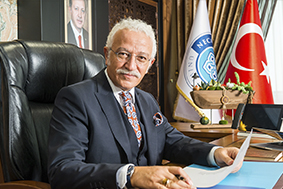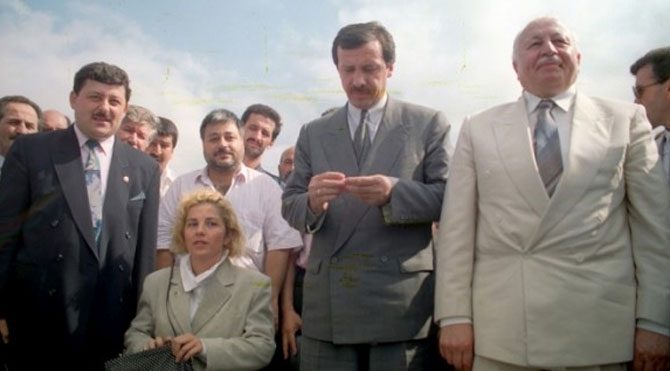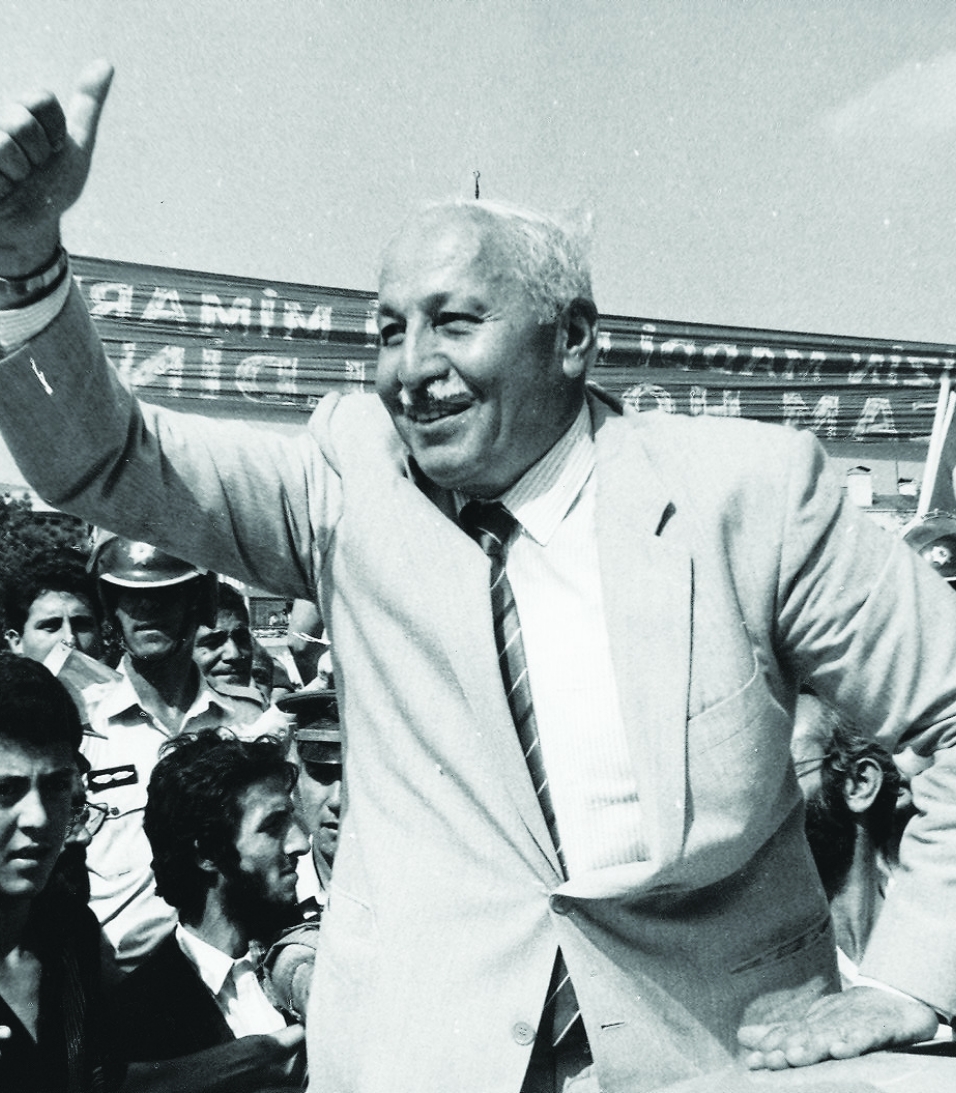In 1956, Necmettin Erbakan founded Gümüş Motor Inc. and produced Turkey’s first indigenous engine. At the 1960 Industry Congress held in Ankara, Erbakan presented the productions of Gümüş Motor and introduced the idea of manufacturing cars in Turkey. This idea gained traction with the government at the time, leading to the production of Turkey’s first domestic car, the “Devrim Otomobili” (Revolution Car), in the Eskişehir Railway workshops.
Erbakan became a professor in 1965. In 1967, he married Nermin Erbakan and was elected General Secretary of the Union of Chambers and Commodity Exchanges of Turkey (TOBB) in the same year.
After the closure of the Welfare Party (Refah Partisi), Erbakan and his colleagues founded the Virtue Party (Fazilet Partisi, FP) on December 17, 1997. FP quickly became an important player in Turkish politics. However, it was also shut down by the Constitutional Court in 2001. Following this, Erbakan and his colleagues founded the Felicity Party (Saadet Partisi, SP) on July 20, 2001. After the end of his political ban, Erbakan returned to lead Saadet Party, spending his last years as the leader of the party.
Erbakan is known for his political ideology called “National View” (Milli Görüş). This movement aimed to build an independent and strong Turkey based on the country's national and spiritual values. He believed that the Islamic world should unite and work together, which led to projects like the D-8 (Developing Eight Countries). In the field of economics, he proposed a model known as “Fair Order” (Adil Düzen), which focused on ensuring justice in income distribution, increasing production, and effectively using national resources.
Necmettin Erbakan passed away on February 27, 2011, in Ankara. He is remembered as one of the most significant figures in Turkish political history. His emphasis on democracy, national will, and contributions to the country’s political and economic development, as well as his leadership qualities, are what he is remembered for. Erbakan’s legacy continues to influence Turkey’s political life today. He is not only remembered as a politician but also as a visionary and leader whose ideals and policies remain an inspiration to many.
Prof. Dr. Necmettin Erbakan built his life upon moral values and spiritual beliefs, always prioritizing the principles of honesty and justice. His leadership was shaped by a desire to serve society and be of benefit to humanity.
After the lifting of his political ban, Erbakan founded the National Salvation Party (MSP) on October 11, 1972. In the 1973 general elections, MSP achieved significant success and entered the parliament, forming a coalition government with the Republican People's Party (CHP) led by Bülent Ecevit. In this government, Erbakan served as Deputy Prime Minister and Minister of Economy. Throughout the 1970s, MSP took part in several coalition governments, during which Erbakan became a prominent figure on Turkey’s political stage. The MSP attracted attention particularly for its agricultural and industrial policies, playing an important role in Turkey’s economic development.
In the 1995 general elections, the Welfare Party (Refah Partisi) emerged as the leading party, and in 1996, Necmettin Erbakan served as Prime Minister in Turkey’s 54th government. During his term, he implemented his economic and social policies known as the “Just Order” (Adil Düzen). He introduced initiatives such as the “Pooling System” (Havuz Sistemi) and launched the D-8 (Developing Eight Countries) project. However, his government came to an end following the post-modern coup process of February 28, 1997, and the Welfare Party was subsequently shut down by the Constitutional Court in 1998. Erbakan was once again banned from politics, and the party’s assets were confiscated.
Necmettin Erbakan is one of the most influential and debated figures in Turkish political history. He is remembered not only as a politician but also as a scientist, industrialist, and leader. His life and career hold a significant place in the political and economic development of Turkey. His ideals and policies continue to inspire many people to this day. Leaving behind a profound legacy, Erbakan has made a lasting impact on Turkish politics and society.
Throughout his life, Prof. Dr. Necmettin Erbakan made great efforts in the areas of national production, industrialization, and technological independence. He implemented numerous innovative projects aimed at achieving Turkey’s development goals. Throughout both his academic and political careers, he advocated for a domestic and national industrial initiative. With his scientific work and visionary leadership, he illuminated the path to Turkey’s future.
Erbakan passed away on February 27, 2011, but his legacy and vision have engraved his name in gold in Turkey’s history of industry and technology. His life, as a symbol of a lifetime devoted to science, industry, and country, continues to inspire many generations in Turkey. Prof. Dr. Necmettin Erbakan, as the architect of Turkey’s national industrial movement, earned a respected place in the worlds of science and politics and is remembered as an unforgettable leader.










